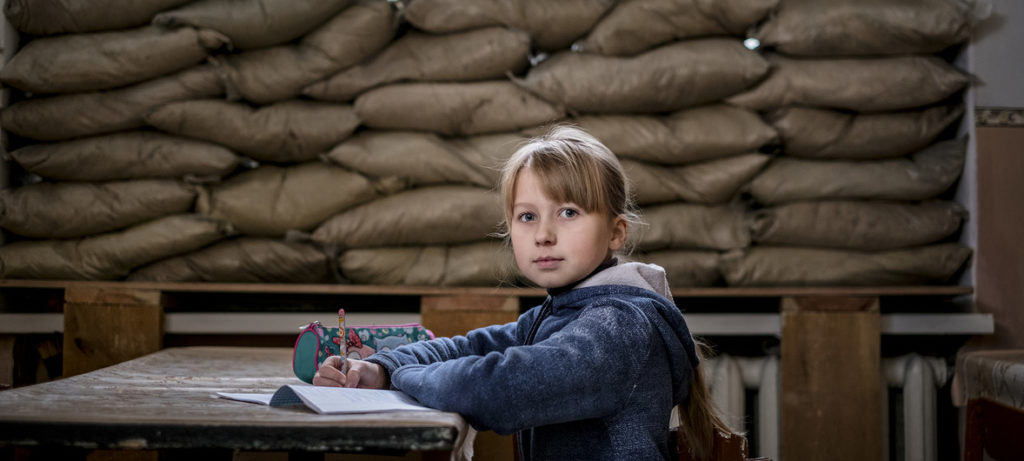GCPEA News
Ukraine: 200,000 children forced to learn in bullet-riddled classrooms
UN News, May 7, 2018
That’s according to the United Nations Children’s Fund, UNICEF, in a statement released on Friday.
“Children are learning in schools with bullet holes in the walls and sandbags in windows, bomb shelters in the basements and shrapnel in school yards,” said UNICEF’s Ukraine Representative, Giovanna Barberis.
“The education system in eastern Ukraine has been in the crossfire for more than four years. All sides of the conflict must respect international humanitarian law and ensure that schools are safe places for children to learn.”
More than four years of conflict in eastern Ukraine between government forces and separatists has taken a devastating toll on the education system. At least 45 schools have been damaged or destroyed over the last 16 months; in addition to the more than 700 schools affected overall since the conflict began.
Many schools and kindergartens are located along both sides of eastern Ukraine’s so-called “contact line” that divides government and non-government-controlled areas. This means that classrooms are often close to military bases and security check points, increasing the risk that they may step on unexploded weapons of war, or be caught in crossfire.
“The children are extremely nervous of shelling and teachers try to calm them down, but it’s hard for them,” said Principal Elena Mihatskaya, whose secondary school in the town of Krasnohorivka has been shut down since last May due to massive damage caused by a shell. “It’s hard for kids to cope because they are nervous and stressed.”
UNICEF helps provide psychosocial support and mine-risk education to hundreds of thousands of children, youth and caregivers. The agency also supports repairs to damaged schools and kindergartens and distributes vital education supplies such as learning kits, furniture sets and sports equipment.
This year, UNICEF has appealed for $23.6 million to provide urgent humanitarian assistance to children and families affected by the conflict in eastern Ukraine. To date, less than 15 per cent of this appeal has been met.





